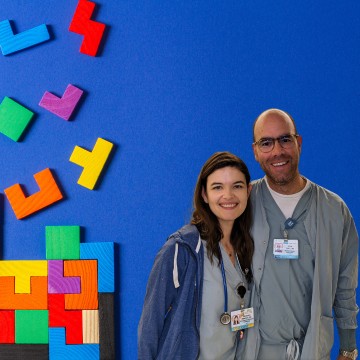The UCLA Health Conundrum

The UCLA Health Conundrum
Within the Division of Bioinformatics, we are proud members of DGSOM. We subscribe to the ethos of teaching, research, and patient care. We work under the auspices of the medical school dean, and the faculty members within the group all have professorial titles that we wear proudly on our ID badges.
The conundrum is that we do not work at the School of Medicine. Instead, we walk into work alongside techs, nurses, and administrators who are all employees of UCLA Health. Governed by the hospital CEO, they follow a separate reporting structure created by the private health system. The negotiations between DGSOM and the health system are endless, as costs and services are split between the collaborating institutions.
So where does that leave Informatics? Well, the electronic medical records, the data, the servers, the database administrators, and all of the Office of Health Informatics and Analytics (OHIA) for that matter, belong to the health center.
Conundrum. How are we to expect the health system to provide us with autonomy to develop our own environment when the DGSOM Faculty Practice Group (FPG) has spent considerable resources to secure data for all the clinical departments? Almost no other department has anything that rivals our system, so why are we different?
Here is the good news. Very early on, around the time of Epic implementation, members of this bioinformatics team were hard at work helping the hospital system decode, organize, and enrich the mountains of data that everyone was learning how to manage. We proved our assistance early on and became valued partners. As a mechanism for us to continue this collaboration, we forged the Perioperative Analytics Center of Excellence (CoE), which is, in fact, a health system entity. CoE has become a safe haven through which we are able to request high-level access and maintain exclusive opportunities reserved for the health system.
Alas, with power comes responsibility. In exchange for the influx of resources, CoE has played an important role in providing data to the health system to support key operations and other departments. We enjoy the freedom of curating our own databases for the good of the DAPM while trying to be good citizens of the health system at large.